Your wishes matter — but in a crisis, they can only be honoured if they’re known. We ensure you can securely upload and store your important documents, then share them with your loved ones, doctors, aged care team and My Health Record — so the right people have it when it matters most.

We empower individuals to take control of their health information and journey by documenting and sharing their care preferences in a way that’s clear, secure, and accessible. Families gain confidence, clarity, and comfort knowing that important decisions won’t be left to chance or confusion during times of crisis.
 Your Voice, Clearly Heard, When it Matters
Your Voice, Clearly Heard, When it Matters“I wanted to make sure my wishes were crystal clear—not just scribbled on a form no one could find,” said Michael, a 72-year-old retiree living independently in Brisbane. “I didn’t want my kids guessing what I’d want in a crisis.”
Using Touchstone Life Care, Michael uploaded his advance care plan from the comfort of his home. In under 30 minutes, he recorded his values, preferences, and medical choices — clearly, thoughtfully, and in his own words. His plan is securely stored, instantly shareable with his doctor, family, and hospital if needed.
Now – Michael has peace of mind knowing his voice won’t be lost in an emergency. And his family has clarity—no confusion, no guilt, just confidence that they’re honouring his wishes.
Start Your Plan Today – It’s Free
Your care. Your choices – secure and accessible when it matters most.
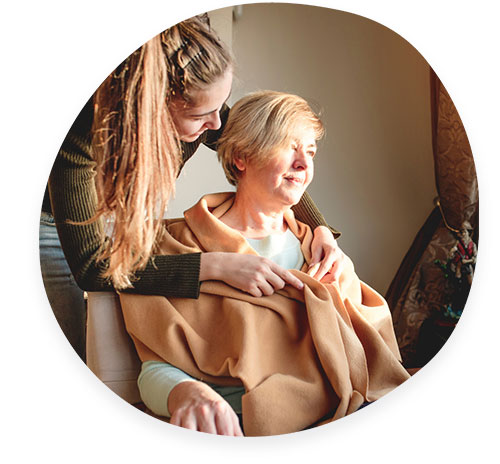 Less Emotional Burden and Stress
Less Emotional Burden and Stress“When Dad was rushed to hospital, we didn’t know what to say to the doctors,” said Lisa, whose father lived with a chronic illness. “None of us knew what he wanted—and we were terrified of making the wrong decision.”
That changed when her father used Touchstone Life Care to upload & store all of his care documents with his wishes clearly outlined. His advance care plan was instantly accessible to the hospital team, and it guided every decision — removing the guesswork and the emotional guilt and long term trauma for families around the end of life stage.
The difference – Lisa and her siblings were free to focus on being there for their dad—not scrambling for answers or second-guessing choices. They honoured him with calm, united support in a moment that could have been distressing.
Help Your Family Make the Right Decisions
Sign up and upload your plans for free.
1
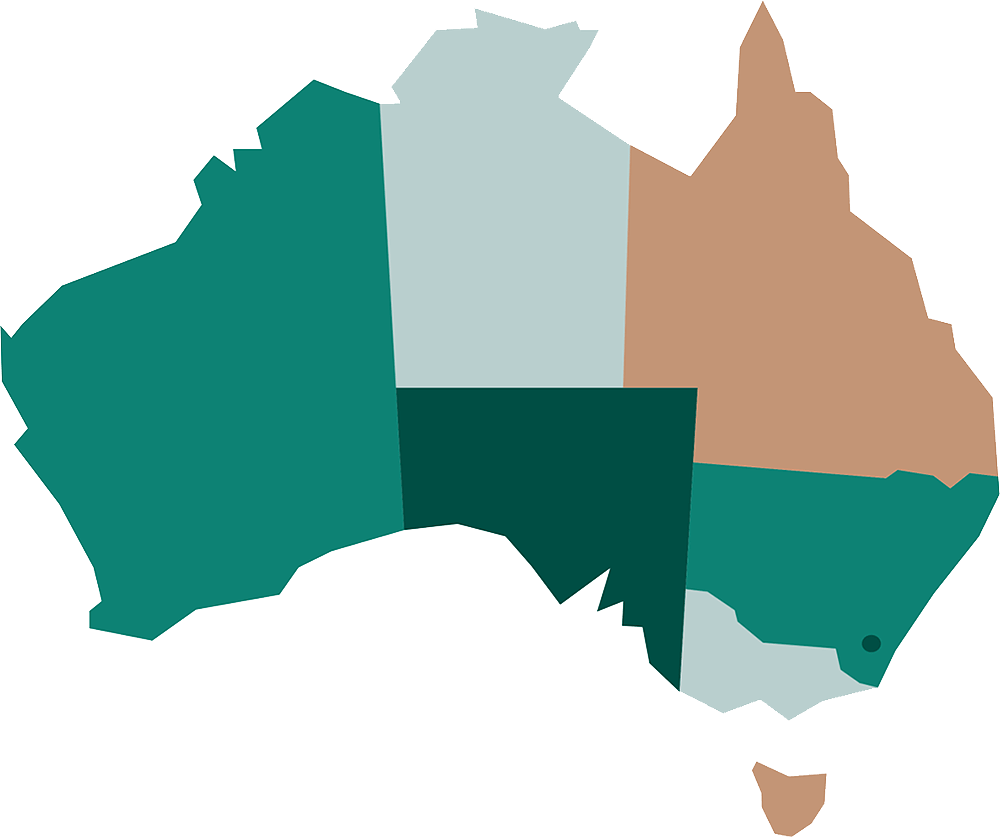
Start by finding our Advance Care Plan. If you haven’t created one, select your State or Territory in the map above to be guided to your correct form.
2
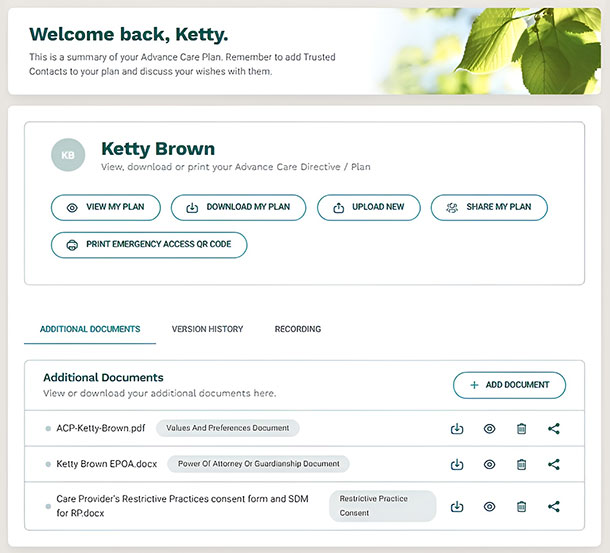
Upload your completed State or Territory’s Advance Care Directive, Plan or Goals of Care forms — or any form created by your GP, lawyer, or advisor, or any important document.
3
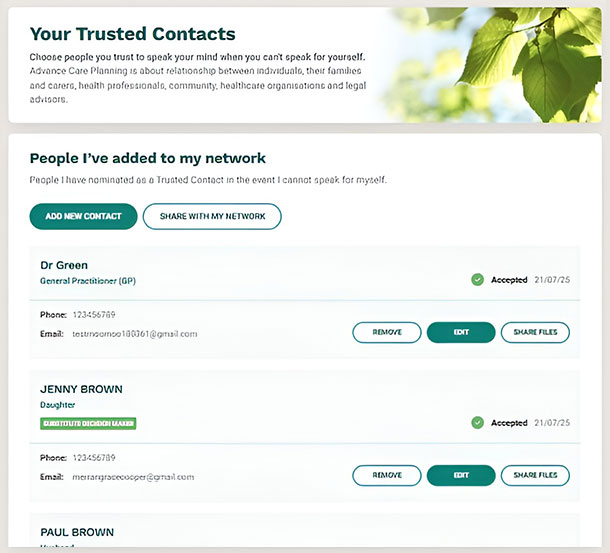
To select and share with unlimited trusted contacts, health and aged care provider teams, select your plan and sign up to activate your account. Our paid plans ensure your documents can be found in an emergency – anywhere, anytime, even interstate or overseas.
4

You can choose if you would like your documents to be automatically linked with My Health Record and other medical care systems.
5
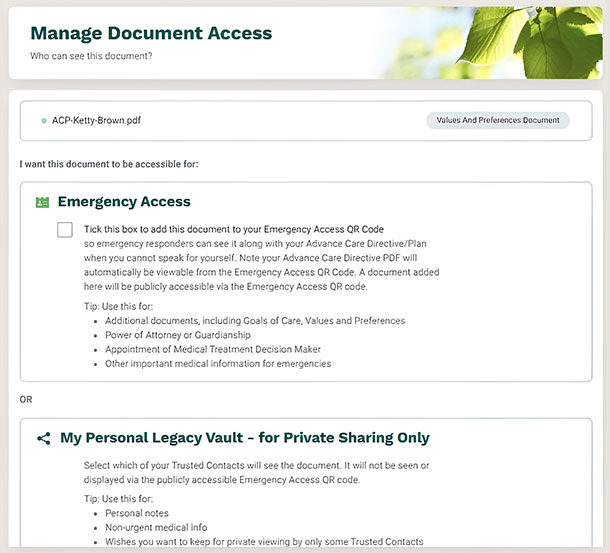
If you do not wish to share certain documents via the publicly accessible Emergency Access QR code, you can use your Personal Legacy Vault to share selected documents and wishes privately and securely.



Everything in the free plan, plus;
For those wanting peace of mind for the rest of their lifetime with everything included in the Annual plan, capped at a $299 one-time fee with no further annual storage or access fees.